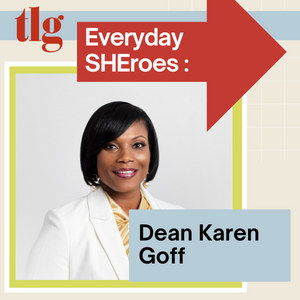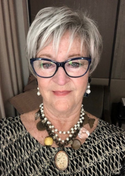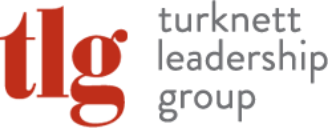
By Susan Hitchcock
Founder & Host Emerita of Women in Leadership
Jamaican born from humble roots, Karen Goff is the epitome of an Everyday SHEro in terms of her extraordinary and inspiring leadership, her track record of success in higher education, and her dedicated advocacy for others, especially the next generation of leaders.
Currently she serves as the VP & Dean of Students at Oberlin College and Conservatory. Oberlin is the oldest co-educational college in the U.S. In 1835 it was one of the first colleges to admit African Americans, and two years later, was the first to admit women! Before moving to Oberlin in 2021, Karen was VP of Student Affairs and Dean of Students at Agnes Scott College, named “the most innovative liberal arts college in the U.S. for the past 5 years“.
Karen’s story is extremely compelling and it serves as a testament to the power of finding and living one’s purpose and passion.
Karen’s Roots- Early Life Influences
Growing up in a small town in Jamaica, Karen lived a simple but abundant life in terms of her family and the environment that surrounded her. “My leadership development started in elementary school. My mom was frequently at the school because the principal was always saying that Karen is a very smart child, but she never stops talking! But many of those trips my mom made to my school were because I was in some way challenging the status quo. Even as a little girl, this was not the norm in a more patriarchal society. I spoke up when I saw things that I thought were unjust. And even though I wouldn’t have labeled them in that way then, I now see those same patterns throughout my life.”
“I would also say my grandmother especially made an indelible impact on my life. She was a farmer and I remember seeing her at the market when I was coming home from school. She always knew how to strike up a conversation. My home was always open to everybody because of my grandmother and my mom. Even when we immigrated to the United States and people would come from Jamaica and they might not have had a place to stay, our home was the place that they’d be invited in to stay.”
“As a little girl, I didn’t like everybody coming in. But, it taught me something about care and hospitality and that you didn’t have to have a lot to give. You gave from what you had. So I think those early lessons helped to shape the kind of leader I am today in terms of how I go and move throughout the world, wanting to make people’s lives better. And then finally, growing up in Jamaica, in terms of my own identity, my teachers were instrumental in shaping me. I grew up in a space where I was affirmed consistently as well as challenged. I don’t think there was anything I was told that I couldn’t do. So today when I see challenges and problems, I have this mindset that they can be solved.“
Finding purpose, passion and her career path
There’s no question Karen is living her purpose and passion. However, how it came about may be surprising. She explained, “Honestly, I don’t think I chose student affairs in higher education. The role chose me. Not in a very cliché way, I just never set out to be in higher education. I simply looked at the things that I was most interested in. Early on, people would often say that I’m an advocate, speaking up against injustices and wanting to correct those things. So I thought I might be an attorney.“
But law school did not turn out to be her path. While on her early career path in nonprofit, someone asked her if she’d ever thought about going into higher education. They pointed out how natural and authentic she was with young people. Additionally, with her passion for developing the next generation of leaders, she was told she should really consider higher ed.
“I did a self-assessment,” Karen said, “figuring out what I thought were my gifts, my talents, where I wanted to make an impact in the world – and – where I might be able to make the most impact. I knew I was interested in leadership and so when I asked myself those fundamental questions, I felt the best place for me was on a college campus. That’s really how my journey began.”
Interestingly, while pursuing a position in leadership development, the interview panel redirected Karen towards a broader role in higher education – specifically student affairs. Her decision to follow that recommendation has resulted in a highly successful career in senior leadership at Georgian Court, Agnes Scott and now Oberlin College. “And I’ve never looked back since,” she said.
Professional satisfaction and future challenges
Leaders like Karen do what they do, not for the glory, but because they get tremendous joy and satisfaction seeing the success of others. “It’s all about seeing a student’s eyes suddenly light up because they’re able to complete college, or get that first acceptance letter into grad school. My greatest satisfaction even now is following so many of my former students on LinkedIn. They’re attorneys, medical doctors, social workers, scientists – all doing amazing things! I know their stories, so I know what it took for them to be where they are. To know that I had one little part in that brings me more joy and satisfaction than anything else in the world – seeing them make a difference for their families, fulfilling their own dreams, and ultimately, changing generations, their own and through a ripple effect, those that come after them.”
“To me, that’s the multiplying effect of leadership – you change one person’s life and they change two, and those two change four, and those four change ten, and those ten change twenty. Before you know it, you’ve changed lives, lives that you’ve never met and that will never know your name.”
Along with the positives in her job, Karen clearly has to think about other things, i.e., the challenges or concerns that might keep her awake at night.
“First of all, I do try to be intentional about getting enough sleep, but of course, there are so many things happening right now in higher education and continuing to change since I started in the field. One challenge and concern is how are we going to respond and sustain the rising cost of higher education. It may not necessarily keep me up, but it’s something I think about and especially for our students who are not from high financial wealth backgrounds.”
“I also think a lot about the challenges around mental health, before the pandemic, but mental health issues have certainly been exacerbated since the pandemic, and we’re seeing that manifested more and more on our campuses. That keeps me up, because it’s real, not only with our students, but with staff, how stretched people are-and the demands of the work. You can’t hire enough people to respond to the challenges, so what’s the next model? How do we create whole campuses and a culture of wellness and wellbeing especially for our students?“
Insights on Diversity, Equity, and Inclusion (DEI)
Talking about change naturally brings up the impact and focus on DEI across the board, including higher education. Karen said, “I think it’s front and center and certainly it’s making a significant impact. When I think about the last two institutions where I’ve been, I’m quite proud of both Agnes Scott and Oberlin.”
“Agnes Scott has done a tremendous job both inside and outside the classroom. They’re not afraid to have difficult conversations and to reckon with their own history. They also consistently seek innovative ways to respond to the world in which we live. That’s the whole essence of Agnes Scott’s SUMMIT initiative with focus on global education and leadership development.” (NOTE: ASC is ranked #1 as “the most innovative liberal arts college in the U.S.” five years in a row and there is no single majority of any ethnic group within the student population.)
“Similarly with Oberlin, being the first institution of higher education in the United States to have admitted blacks and women, that’s a legacy to be proud of!”
“But we have to continue to really push against the status quo and contend with challenges we face as a nation and the world. DEI can’t just be programmatic. It has to be fundamental to the academic mission. Overall, as a society, we have a long way to go and we’ll have to continue to be committed to doing the work. It has to become a part of the ethos of who we are and when we see injustices of any kind, we must continue to challenge them, speaking up and making sure that equity, inclusion, diversity, and justice are represented in our practice.“
Leadership Strengths
As already mentioned, Karen’s professional accomplishments are well documented. But it’s worth sharing a bit more about her approach to leadership. “In terms of being strategic,” she said, “I think I’m just wired that way. One of my former presidents said to me one day in a meeting, ‘You know, you’re a rare combination – someone who thinks strategically but who’s also able to figure out how to implement or execute.”
“In addition to being a strategic thinker, I’m also wired to think in terms of systems. As I see it, if we can get systems to function and work, then they’re not built on individuals or personalities. Long after the personality or the individual has moved on, the system still works. The way I approach my work is I’m always thinking about how the work I have done needs to outlast me.“
“I think about teams in that way and that’s why I love developing teams. I want to make sure people are developed in a way where they can be independent thinkers. I like to think strategically because it’s not just about the now. It’s about the future, that other people coming after you will benefit from your decisions.“
“If someone asks me to explain my strengths, I would say that at Agnes Scott and at Oberlin, I looked at the big picture and asked: ‘What are we trying to accomplish? Where are we going?’ Those are the big questions, then I ask-what are the challenges, obstacles and opportunities? Once I am able to answer these questions, the next one is, ‘Who do I need to help us to get there?’ At that point I start to identify specific talent gaps. Finally, I would ask, ‘Where are we going to see ourselves in 5 years, in 10 years? What do I want the experience to be for the people who are going to benefit from this, in my case, students?’ When I start asking those big questions and I can answer them, then I start working backwards.“
Personal & professional wishes
To provide Karen with the opportunity to go beyond her current thinking, she was given a “virtual magic wand” to wave in any way she wished. Her response speaks even more to who she is. “That’s a good question,” she said, taking her time to ponder. “I think personally, I would want to do something really significant and meaningful in my home country of Jamaica, in that little town where I grew up. I would probably want to make the infrastructure better. And, I would want to enjoy that rural place of the river, the farm and the trees. With a particular birthday coming up, I find myself getting real nostalgic and craving simplicity – in a way that I haven’t.”
“Waving my magic wand on the professional side, I know I’m a people builder. So even as I evaluate where I am, I really want to challenge myself further in terms of building and shaping leaders. I think that’s something that I’m poised to do in a very unique way. I don’t know how that will manifest, but I’ve always been doing that. I’d like to do it more profoundly and more intentionally.“
Wow, those are two very interesting wishes! Can’t wait to see both come to fruition. In the meantime, all who know Karen Goff will continue to follow her highly successful and impactful career – a true EVERYDAY SHEro and leadership legacy in the making!
Interview & Profile by Susan B. Hitchcock, Creator of The Age of SHEroes
March 2023

